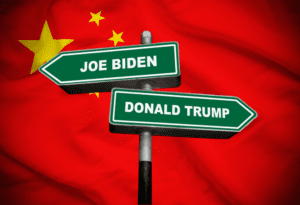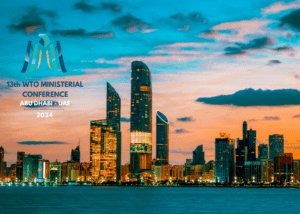On March 13, WITA and the Asia Society Policy Institute hosted a Zoom webinar that looked at trends and policy implications for investment into the Mexican automotive sector by Chinese and other foreign firms. These investments are, in part, a response to U.S. trade policies, specifically the China tariffs and USMCA, but also the tax provisions in the Inflation Reduction Act, and the Biden Administration’s efforts to shorten supply chains and bring more manufacturing to North America.
This event was held in partnership with the Asia Society Policy Institute.
Featured Speakers:
Governor Matt Blunt, President, American Automotive Policy Council
Michael Dunne, CEO, ZoZoGo; author of the upcoming book: Humiliation No More: China’s Master Plan to Dominate Electric Car Markets Worldwide
Ilaria Mazzocco, Senior Fellow, Trustee Chair in Chinese Business and Economics, Center for Strategic and International Studies
Scott Paul, President, Alliance for American Manufacturing (AAM); co-author of the paper: Why Chinese Autos Could Be an “Extinction-Level Event” for America’s Auto Industry
Kenneth Smith Ramos, Partner, Agon; former lead Mexican negotiator of the USMCA
Moderator: Wendy Cutler, Vice President and Managing Director, Asia Society Policy Institute (ASPI) Washington, DC Office; former Acting Deputy United States Trade Representative
|
03/13/2024 | Washington International Trade Association | In Partnership with the Asia Society Policy Institute |
The Sudden Death of Detroit in China
|
This piece was authored by Michael Dunne, one of the featured speakers at WITA’s March 13 event on Chinese investments in the Mexican auto sector. The bodies are still warm. But the victims are already dead. Natural causes? Or was there foul play? GM, Ford and Jeep – once darlings of the Chinese consumer – are goners. Sales have collapsed. Profits are heading toward zero. In 2023, the Detroit Three sold 3 million fewer cars in China than they did in 2017: 2.3 million vs 5.4 million. That is six straight years of falling sales – and we have not hit bottom yet. Jeep’s China joint venture went bankrupt in October 2022, despite operating in the world’s largest SUV market. Ford is losing buckets of money, operating at just 25% of its plant capacity. For years GM made ‘more money than God’ in China, a former executive once told me. Today, the company is grasping at straws. Mary Barra recently told investors that GM would move its products upmarket in China to be “more premium and high end,” including the Cadillac Celestiq, starting at $300,000. That’s a roundabout way of saying that GM can no longer compete in most segments of the China market. Detroit’s China demise came so suddenly that there was talk of summoning Inspector Jacques Clouseau, the internationally famous solver of murder mysteries. Alas, China would not grant Monsieur Clouseau a visa. So we are left to piece together clues on our own: How did the Detroit 3 expire so swiftly? And what might the end of Detroit in China tell us about what happens when Chinese automakers enter the US market? |
|
The China Policy Gap Between Biden and Trump Is Bigger Than You Think
While many recoil at the prospect of a rematch between Joe Biden and Donald Trump, Super Tuesday’s outcome sealed Nikki Haley’s failed bid to challenge the former Republican president. With the second Biden-Trump face-off going down to the wire this November, the two presidential candidates are competing to raise the stakes against China. Thus, some argue that regardless of who wins, the United States’ overall China policy may remain largely unaffected.
In rhetorical terms, that might hold true. However, in practice, the gap between their approaches to China may be more significant than anticipated.
With a political career spanning six decades, Biden has demonstrated his adeptness balancing his China policy, tailoring his message for different audiences. Domestically, the initial phase of his presidency was enveloped in a widespread anti-China sentiment in the United States, amid speculations about the origins of the COVID-19 pandemic and China’s aggressive “wolf warrior” diplomacy. Against that backdrop, despite undoing many of Trump’s policies, Biden opted to retain the most high-profile piece: his predecessor’s tariffs on Chinese imports. As his presidency progressed, Biden took meticulous steps to gradually escalate the crackdown on Beijing’s tech development without inciting significant backlash from concerned Americans.
Throughout his tenure, Biden strategically executed his China policy to address the prevailing anti-China sentiment among the domestic audience while minimizing the political costs incurred. This approach not only thwarted attempts by his political rivals to portray him as soft on China, but also shielded him from much of the criticism that Trump faced regarding his dealings with the Asian powerhouse.
On the international stage, Biden has positioned himself as a coordinator among traditional allies of the United States who is also willing to cooperate with China, a stark departure from Trump’s isolationist stance. On the one hand, Biden has aligned allies in the Indo-Pacific and globally to counter Chinese military presence and aggression in the South China Sea, reaffirming unwavering U.S. leadership in the face of China’s assertiveness. On the other hand, he has pursued active engagement with China, facilitating high-level dialogues to deescalate tensions between the two nations. This includes meetings between himself and Chinese President Xi Jinping, despite occasional challenges such as the Chinese surveillance balloon that passed over the U.S. mainland in early 2023.
|
Six Takeaways From WTO MC13
Success at last week’s Ministerial Conference of the World Trade Organization was always going to be a long shot. The unfortunate alignment of the political stars virtually assured the meeting in Abu Dhabi would end badly.
Looming elections in India, the United States, and Mexico, plus a newly installed administration in Indonesia, severely restricted the room for maneuver and crushed any inclination to compromise.
Where the negotiating efforts fell short of agreement – in agriculture, fisheries subsidies, and reform of the organization’s crippled dispute settlement system – the outcome was almost preordained. India was not going to risk blowback from its farmers or fishers and the US was not going to yield on a newly minted Appellate Body.
In her concluding press conference, WTO Director-General Ngozi Okonjo-Iweala referenced the many strong headwinds confronting MC13 including the wars in Ukraine and the Middle East, slumping demand in many economies, and pending elections in more than 60 countries in 2024. She tried to put a brave face on the results from the five-day meeting by suggesting what trade ministers achieved was “pretty amazing” and that the glass was “three-quarters full.”
To be sure, there were some positive results, including the accessions of Comoros and Timor Leste and the entry into force of the 2021 agreement on Domestic Regulation in Services.
But on the major issues, WTO members came up empty.
|
|
|
|





